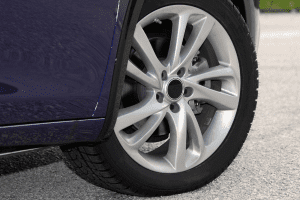Why does my car judder?
Feeling your car judder for the first time can be an unsettling experience but Car Friend will find out why.
Why does my car judder?

Feeling your car judder for the first time can be an unsettling experience – the sense you’ve lost full control of your car. Any kind of judder poses a risk to you, your passengers and other road users and should be investigated as soon as possible.
Finding out why your car is juddering is often complicated because there are so many possible causes.
If your car is juddering and the engine light is on
If your car is juddering your ‘check engine’ light may well be on or come on intermittently. However, it may not come on at all even though you are experiencing a judder. Some issues can perplex even the most experienced mechanic but the cause is probably down to a faulty component – the trick is finding out which one.
Is the noise coming from the engine, the transmission, the suspension, or the driveshaft? It’s important to identify if the juddering is related to the engine (engine speed issue), or the transmission/suspension/driveshaft (road speed issue). If you have little mechanical knowledge then this will, of course, be a big challenge. Taking note of when the juddering is at its worst can help us identify the issue. Don’t worry our skilled technicians are well equipped at diagnosing these issues.
Do your spark plugs need to be cleaned or replaced?
A faulty spark plug could cause the engine to misfire. Any halt in the ignition of the fuel-air mixture could cause the engine to halt momentarily. Most manufacturers will have a recommended replacement interval for replacing spark plugs so ask our friendly team for more information if you are experiencing this issue.
Ignition coil failure (coil pack)
The ignition coil amplifies the battery’s voltage, creating the surge of electricity required to fire up the engine. If a coil fails, it won’t ignite the air-fuel mixture and a cylinder will stop operating momentarily, interrupting the engine’s power production. The more coils and cylinders your car has, the less noticeable any judder will be.
Lambda/oxygen sensor: Air-fuel mixture may be ‘too lean’
Your car is almost certain to have at least one oxygen sensor or ‘lambda’ sensor. These reside in your exhaust system and tell the car’s computer how much oxygen is in the fuel mix. The vehicle then adjusts or compensates based on this. However, if the sensor is faulty, it may be giving an inaccurate reading, prompting your engine management system to operate on incorrect data, leading to a fuel mixture that is too ‘lean’. This could cause a judder.
Oxygen/lambda sensors come into contact with very high temperatures and various contaminants, so will deteriorate over time. They should last for around 100,000 miles, but like all auto parts, they will eventually fail.
Faulty CV axle joints
Faulty CV (constant velocity) axles on the drive train could cause heavy vibrations or judder. CV axles wear out over time. Other signs your CV axles are under-par include loud clicking noises while turning and grease on tyre edges.
Poor quality petrol
Although unlikely these days, poor quality fuel could cause a problem with your engine. Like with everything car related, diagnosing an issue is always the first place to start when you’re experiencing something wrong with your car. The best thing to do, in all instances, is to get your car to Car Friend and let us look at it for you. We will often look at most issues free of charge then provide you with a fixed price repair cost.
Contact Us »Our Location
Find Us
Unit 17 Norton Canes Business Park
Norton Green Lane
Norton Canes, Cannock
Staffordshire
WS11 9SS
01543 27 60 60
Opening Times
| Monday | 08:00 - 17:00 |
|---|---|
| Tuesday | 08:00 - 17:00 |
| Wednesday | 08:00 - 17:00 |
| Thursday | 08:00 - 17:00 |
| Friday | 08:00 - 17:00 |
| Saturday | By Appointment |
| Sunday | Closed |
Car Repairs & Services
- Auto Electrics
- Cambelts
- Car Air Conditioning
- Car Batteries
- Car Body Repairs
- Car Brakes
- Car Exhausts
- Car Modifications
- Car Repairs
- Car Safety Checks
- Car Servicing
- Car Tyres
- Classic Car Repairs
- Classic Car Restoration
- Classic Car Service
- Clutch Replacement
- Courtesy Car
- Dent Removal
- Engine Diagnostics
- Engine Management
- EV Repairs & Servicing
- Fleet Maintenance
- Fuel System Cleaning
- Hybrid Repairs & Servicing
- Mechanical Repairs & Investigations
- MOT
- Motor Oil
- Suspension
- Vehicle Recovery
- Vehicle Welding
- Wheel Alignment / Tracking
- Wheel Balancing
- Windscreen Wash
- Windscreen Wipers
- All Car Repairs & Services…
© Car Friend - 2024












